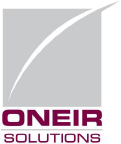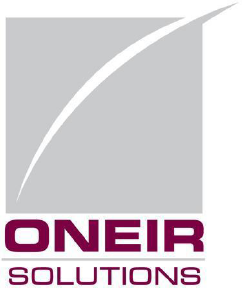Benefits to Automating Your Accounts Receivables Part I
Overview
Many aspects of businesses can now be automated to streamline many processes, including accounts receivables (AR). By automating these financial processes, you can make a huge difference to both your business and its clients. Accounts receivables can often be challenging for many firms that are still doing their accounting the manual way. Even those companies that are computerized, but do not have all the tools at their fingertips to effectively manage their accounts receivable may require more control.
Here are a few reasons why automating your AR can be beneficial for your company.
1. Standardize Your Collection Processes
Each member of your accounting team may have a different process for handling accounts receivables that come in. Your business can easily suffer from inefficient processing of payments if there is no adequate coordination in place. Having an automatic process for your records through your business’s ERP system can streamline the whole plan, and make […]
Software Solutions
There are five “must-have” features processors should consider with business software
The reality of the day is that food producers must not only maintain a strong defense against recalls, but also against increasing regulations, food sensitivities in the population, environmental consciousness and PETA agendas.
All this is squeezed against tighter operating margins brought on by extreme weather changes and ever-mounting business fees and taxes.
Many famous food industry names populate the FDA and USDA’s “rap sheet” of food producers who have been required to issue a recall of possibly contaminated foods. Surviving and prospering now requires excruciatingly tight control of all aspects of food production—from the acquisition of ingredients all the way to delivery of the food product to the consumer. Legacy stand-alone systems for processing, inventory control, sales and accounting simply cannot keep up. “What’s been done in the past is no longer good enough,” says Jon Mainwaring, executive vice president […]
Taking Your Business to the Next Level Requires Innovative ERP Software That Can Keep Up
With digital technology rapidly developing, businesses must also change and evolve. Many companies across the globe are growing at incredible rates, while others are evolving to adapt to the changing needs and wants of consumers. Within a short time frame, small businesses are turning into global enterprises, which most certainly come with a host of complexities that must be contended with.
With such fast transformations, businesses need to adopt systems that allow for enhanced performance and maintained profit levels. Companies simply cannot deal with all the issues that typically come with drastic change. Instead, they still need to be able to deal with changes and opportunities quickly without having to put up with cumbersome IT systems.
And all companies that aspire to reach international levels will eventually require fully-integrated global ERP software to provide them with the right language, taxations and currency rules that are pertinent to the nations they are operating […]
Steps to Successfully Implementing an ERP System
No matter what industry you hail from, success is typically attained only after a number of steps are gone through in great detail and in the proper succession.
The same goes for ERP system implementation. As important and extremely helpful such software is to running a streamlined and profitable business, how it’s implemented into the grand scheme of things makes all the difference.
To ensure optimal success of executing an ERP system into your business, be sure to go through the following steps.
Assess Your Business’s Needs
The first step to take is to evaluate certain aspects of your business, including its workflows, challenges, and reporting requirements. After you’ve documented such details, plan them out. Such initial efforts can help make the entire process that much more efficient for everyone involved.
Evaluate Your Options
Ask some of your trusted and experienced colleagues what their opinions are and what type of feedback they can offer regarding how […]
Is Your Current On-Site ERP System Costing Your Business?
Outdated ERP systems come with a host of limitations, which can inevitably cost your business. Old-school ERP systems may have meant well when they were first designed and implemented, but they are nowhere near adequate for today’s more modern and sophisticated business needs.
Old systems used to capture many internal events, then they would simply move them from one subsystem to another. Yet while they were able to co-ordinate activities for the short-term, they were destined to become obsolete sooner or later.
There aren’t many decades-old technologies that are still in operation today, especially given the innovation that we’ve experienced over the past few years. Let’s face it – with mobile and digital technology, not too many businesses use dial-up modems and floppy disks anymore.
It’s understandable to be a little hesitant to replace an old system with a new one, considering the costs associated with it, as well as the training involved. […]


